 We must end the violence inside the LGBT communities before we can effectively unify to combat the violence from the outside. By maintaining silence when a figure with a platform in the community engages in acts of lateral violence, we are not only enabling that person to continue unabated, we are also guilty of exposing others in our already high-risk community to harm.
We must end the violence inside the LGBT communities before we can effectively unify to combat the violence from the outside. By maintaining silence when a figure with a platform in the community engages in acts of lateral violence, we are not only enabling that person to continue unabated, we are also guilty of exposing others in our already high-risk community to harm.
The response to the recent video depicting NFL star Ray Rice giving his then fiancee a knock-out blow, is a perfect example of how victim-blaming is a problem in society as a whole, and not just inside the community. The rates of violence in the LGBT is stunning. According to the CDC, bisexual women have a 75 percent rate of being with at least one violent partner, 46 percent of lesbian women — almost 1 in 2 have been involved in an abusive relationship, and for gay men, the figure is around 40 percent — double that experienced by straight men.
Not holding the abuser to the same set of rules as the rest of society because of their position in the LGBT coalition or mental health status puts people’s lives at risk. Victims of abuse consistently self-harm, and some even commit suicide as a result. The best thing we can do as a community is root out violence where it occurs by ensuring that we hold accountable those in our midst who commit acts of abuse against other members of the LGBT coalition.
 It is easy for a community well-versed in physical harm and mental health conditions to want to gather around an abuser in an attempt to rescue them from their perceived mental anguish. The unfortunate consequence of this behavior is that it oftentimes merely serves to enable an aggressor to continue their behavior. They become aware that they have the power to continue to do so, and that if they are brought to task in the future for similar behavior, they know that they can convince those same people that they were not at fault due to their mental state.
It is easy for a community well-versed in physical harm and mental health conditions to want to gather around an abuser in an attempt to rescue them from their perceived mental anguish. The unfortunate consequence of this behavior is that it oftentimes merely serves to enable an aggressor to continue their behavior. They become aware that they have the power to continue to do so, and that if they are brought to task in the future for similar behavior, they know that they can convince those same people that they were not at fault due to their mental state.
How about we take this to the next level?
Our newsletter is like a refreshing cocktail (or mocktail) of LGBTQ+ entertainment and pop culture, served up with a side of eye-candy.
This is a very typical pattern in those who commit acts of abuse. As an abused spouse in a straight marriage prior to transition, I was assaulted by an alcoholic who claimed that she was not responsible for her actions while intoxicated because she had blacked out. She would then cry that she was sorry for whatever it was that she had done, and swear her undying love while vacillating between threatening self-harm and declaring that she needed help. My fear for her mental state led to me trying to work with her through rehab and therapy, only enabling her to continue that cycle of abuse because I did not pull away and remove myself from that situation. If someone has committed an act of abuse and is threatening self-harm, it is likely untrue. The mindset of an abuser is such that they place themselves above all others, and someone who places themselves that highly is unlikely to self-harm. Rather than harboring thoughts of saving or rescuing the other person in an situation where you are being abused, psychologists agree that the best cause of action is saving yourself.
 This is true equally of those who are physically or verbally violent towards others — the mindset of the abuser is the same, and the best course of action is the same. If you are the victim of violence, don’t allow the perpetrator to set the narrative. The majority of threats that they may make to you regarding themselves are only designed to make you stay, or to make you feel sympathy for them. Oftentimes, they will also gaslight the situation, hinting or nudging you towards an acceptance that they are hurting more than you are, or that you may even be imagining some of the abuse. An abuser will often redefine the narrative to blame others for their troubles, such as claiming that because what they said or did was in private, it is an attack on them if that information is shared with anyone. Abusers will seldom admit that they are wrong, or for that matter, less than perfect. It’s always someone else’s fault when they act inappropriately.
This is true equally of those who are physically or verbally violent towards others — the mindset of the abuser is the same, and the best course of action is the same. If you are the victim of violence, don’t allow the perpetrator to set the narrative. The majority of threats that they may make to you regarding themselves are only designed to make you stay, or to make you feel sympathy for them. Oftentimes, they will also gaslight the situation, hinting or nudging you towards an acceptance that they are hurting more than you are, or that you may even be imagining some of the abuse. An abuser will often redefine the narrative to blame others for their troubles, such as claiming that because what they said or did was in private, it is an attack on them if that information is shared with anyone. Abusers will seldom admit that they are wrong, or for that matter, less than perfect. It’s always someone else’s fault when they act inappropriately.
Unfortunately, even though well-intended and with the safety of the abuser in mind, in instances where others are aware of the abuse taking place and are trying to rescue the abuser out of a misguided notion that they can help them, what they are actually doing carries the unintended consequence of creating secondary abuse. In the words of Elie Wiesel, “Neutrality helps the oppressor, never the oppressed. Silence encourages the tormentor, never the tormented.” If a third party seeks to avoid confrontation and conflict between the parties by absorbing the abuse without challenging it or setting boundaries, then they have successfully enabled the abuser to continue unabated once the current issue has subsided. The moment someone makes an excuse for an abuser, be it possible mental illness, risk of self-harm, or blame placed on others for “starting” their fit of rage and abuse, they themselves become an abuser.
 In the LGBT coalition, we generally try and shield someone from the consequences of their own behavior because we want to keep the problem inside. We tend to attempt to help them heal themselves, offer a shoulder to cry on, and even act as armchair therapists, in the hope that we are going to help them overcome their issues. The truth is that this is probably the largest mistake that we can make in any abusive situation. A lack of consequences, or a reduced set of consequences based on taking into account the person’s perceived mindset or mental health, sends the message to the abuser that they can continue to abuse others because they will not be held responsible for their actions. Failure to follow through with appropriate consequences for inappropriate behavior does not help the abuser evolve or grow as a person or overcome mental illness; it enables their unhealthy cycle of abuse to remain stagnant.
In the LGBT coalition, we generally try and shield someone from the consequences of their own behavior because we want to keep the problem inside. We tend to attempt to help them heal themselves, offer a shoulder to cry on, and even act as armchair therapists, in the hope that we are going to help them overcome their issues. The truth is that this is probably the largest mistake that we can make in any abusive situation. A lack of consequences, or a reduced set of consequences based on taking into account the person’s perceived mindset or mental health, sends the message to the abuser that they can continue to abuse others because they will not be held responsible for their actions. Failure to follow through with appropriate consequences for inappropriate behavior does not help the abuser evolve or grow as a person or overcome mental illness; it enables their unhealthy cycle of abuse to remain stagnant.
Kelsie Brynn Jones is an activist and writer whose work has been published on Queerty and Huffington Post.
Don't forget to share:







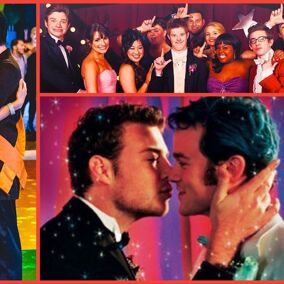

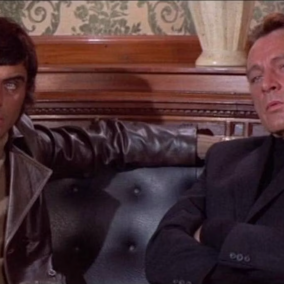
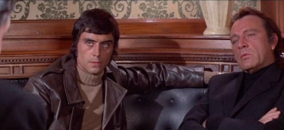


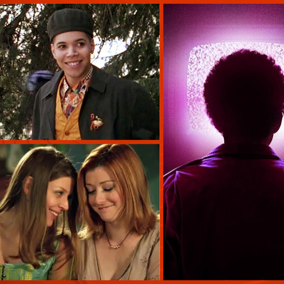
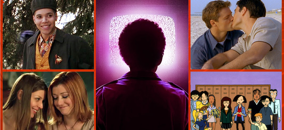
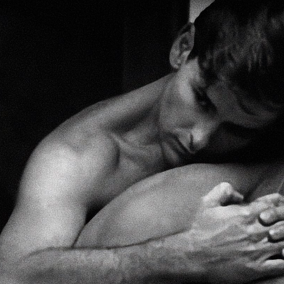
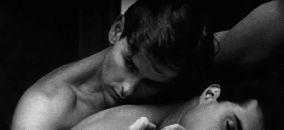
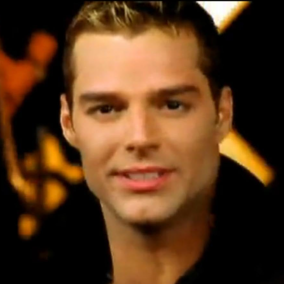
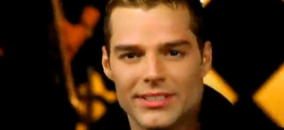
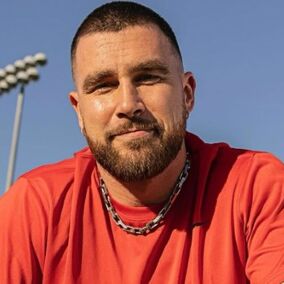
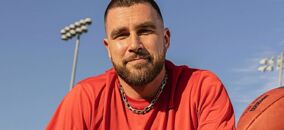
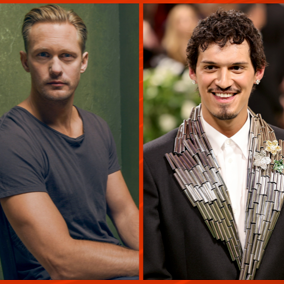
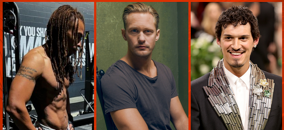
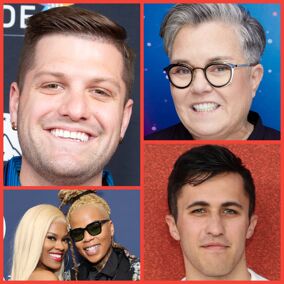

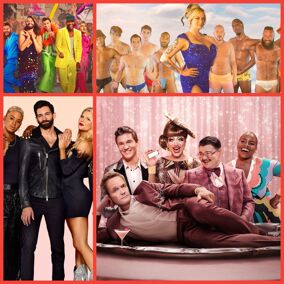
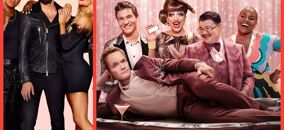
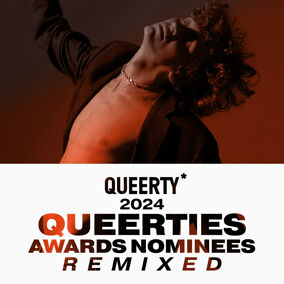
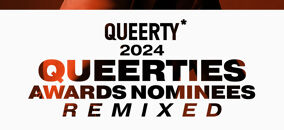


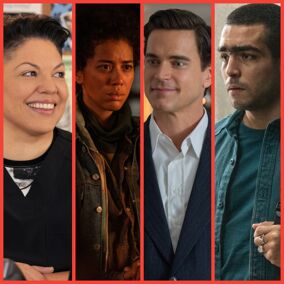
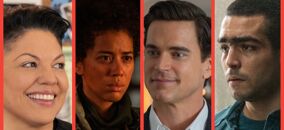
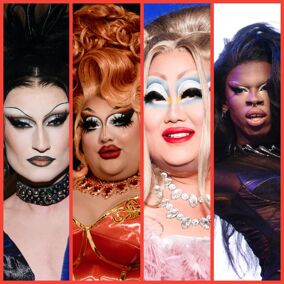
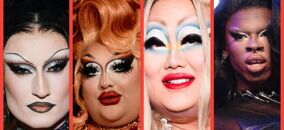
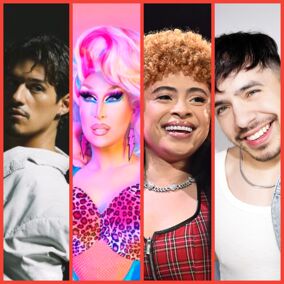

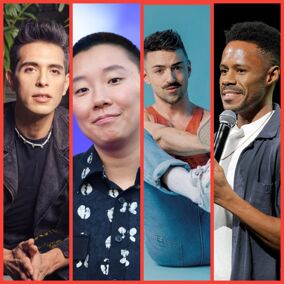

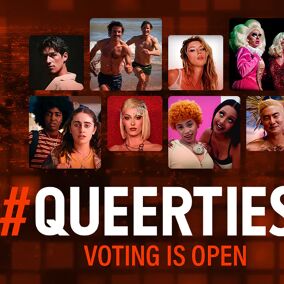
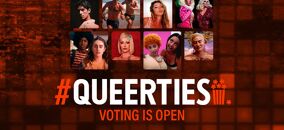
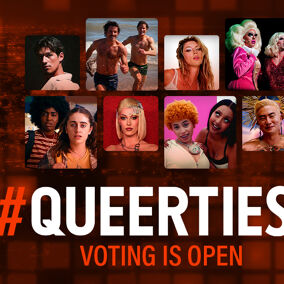
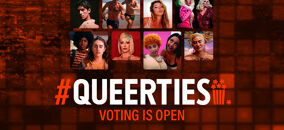














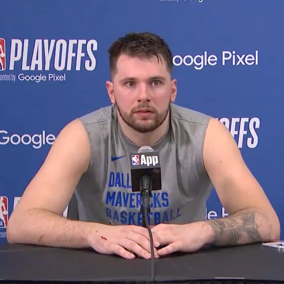

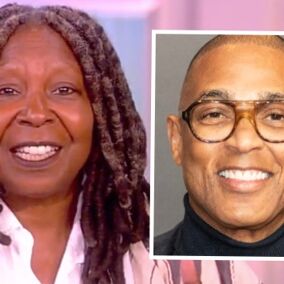

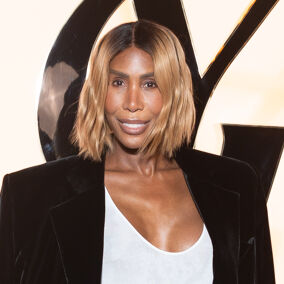

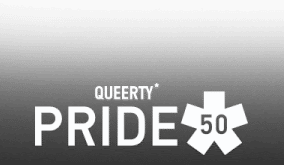

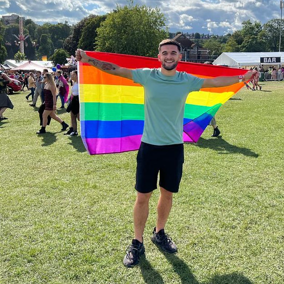
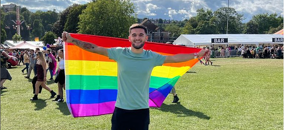
Desert Boy
I used to think the people in gay relationships were on better behavior. We’ve fought so hard for so long for a place at the table so, it’s very disappointing to read as many as 40% of gay men have experienced physical abuse from their partners.
All I know is this. If my spouse ever put his hands on me violently, the relationship would end that moment. I couldn’t wait to file a police report on him. Violence is never acceptable.
enlightenone
@Desert Boy: Good for you! Though, sadly, it shouldn’t be surprising given the social and family abuse a gay child experiences especially if they identify as gay, perceived to be homosexual, or happens to be an effeminate person or gender non-conforming!
Ryan26pdx
Life is a rough ride. Sometimes the companionship feels necessary in spite of…
My guy can be abusive, but he needs someone. I can be strong enough for both of us. This is my perspective alone. I can’t speak for others.
enlightenone
@Ryan26pdx: “…he needs someone…” You are right. He needs a psychotherapist and an abuser group. You may not be able to speak for yourself for very long! He has to be strong for himself. In the meantime, you need to join an ala-non group!
Geoff B
@Ryan26pdx: No, buddy, you can’t be strong for the both of you. You need to be strong enough to walk away, run away, whatever you need to do to get the hell away. Trust me, I’ve been there. The strongest thing you can do is cut this guy out of your life completely. Tell your friends, your family (if that’s an option), get police reports, a restrainging order, if you live in a large city there are probably resourses to guide you though this. You may not believe it right now, but I swear on all that is holy, your relationship is not going to get better. It took me two horrible realtionships to realize that. Trust me once you realize that you deserve better, you’ll get better. It’s hard to walk away, I know, but it is so worth it.
Saint Law
@Ryan26pdx: Need isn’t necessarily love, and if abuse is involved then it never ever is. Get the Hell out of there.
onthemark
The author declares that “we” should do this and “we” should do that, without giving any clues about what to actually DO. As so often happens, the “community” lingo causes the whole article to collapse into well-meaning gibberish.
She describes a totally different “community” than the one I’ve observed for 30+ years. On what LGBT planet are abusers shielded and not held “to the same set of rules as the rest of society because of their position in the LGBT coalition or [supposed] mental health status”? When they’re discovered, abusers are stigmatized – and rightly so. Abusers are called alcoholics – true 9 times out 10 if not more. Maybe abusive lesbians have some exalted status in the (imaginary) “LGBT coalition” that I’m unaware of, but gay male abusers are regarded as the alcoholic and/or drug-addled losers that they are.
The problem is almost always that no one outside the relationship even knows about the abuse. Unless the victim shows up at work with a black eye, and a lame excuse like “uh, I ran into a door” (yep – been there, done that), nobody outside the relationship is going to suspect anything at all.
Domestic abuse may be an LGBT problem, statistically speaking, but what can “we” do about it? Hell, I was actually abused and I have no idea what “we” should do about it, except be on the lookout for potential abusers and avoid them, on an individual level. @Ryan26pdx: …yes, like Ryan should avoid them!
TampaBayTed
Just try to find a “safe house” for a battered gay male. They are virtually non existent as far as I know (can someone enlighten me as to whether they even exist?) And just try to have the police take you seriously if you have to contact them about an abusive spouse/lover/boyfriend. A friend of mine was told to “man up” by the cops who were called to the scene.
verylittlegravitasindeed
Just to be clear, until you’re in this situation, you don’t know how you’d react. I used to prosecute domestic violence. I’m well aware of the cycle of abuse and the signs of abuse. But then I fell in love with an abusive guy.
And I stayed, and I got hit, and I accepted the apologies and I felt bad for him and I tried to help him, and I stayed and I got hit…am I the crazy one? Maybe I was, but just because I could see what was happening, doesn’t make a difference when it’s your own feelings. Don’t be too quick to judge someone who stays in an abusive relationship and I hope all the guys who say they’d never put up with it, never find themselves in a position to find out.
TrueWords
The reason why this is so in the “closet” is because there is no “white, christian, man” to blame.
The LGBT community needs to put their objectives aside and highlight the not so rainbow issues plaguing members.
Liberals love to paint men, especially white men, as evil creatures that are the cause of all hardship in the world for their coalition (minorities and women). Can’t really do that with homosexual domestic violence. All homosexuals are “victims” and “oppressed” according to the current liberal narrative.
How can you campaign against a victim class? It’s like asking NOW to campaign against domestic violence that is caused by women. They will never do it, because playing the victim is critical to their narrative, and admitting otherwise would crush their political power.
scotshot
@TrueWords: So says the “white christian man”. The problem with your narrative is that “white christian men” have always held the power. Now things are changing and people you were able to once intimidate are calling your bluff. You and your ilk have become the largest “victim” group in America today: “white christian man”. We’ll take care of ourselves, you go on to another site to do your Trolling
PS – FU.
Saint Law
@TrueWords: You may not be aware of this, but you’re insane.
Just sayin